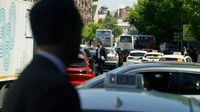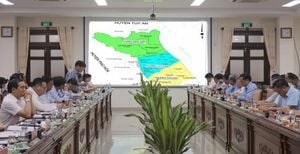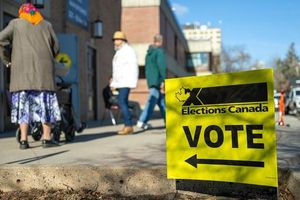On April 28, 2025, Spain faced a historic crisis as a massive power outage plunged much of the country into darkness, prompting the government to declare a "national interest emergency" in five autonomous communities: Madrid, Andalusia, Extremadura, Murcia, and La Rioja. This declaration, made by President Pedro Sánchez during a press conference from La Moncloa at 18:00 local time, was a response to requests from regional leaders, all of whom are affiliated with the Popular Party (PP).
As the crisis unfolded, Sánchez acknowledged the severity of the situation, stating, "We are aware of the impact that this power cut is having." The declaration of emergency allows the Ministry of the Interior to take charge of the response efforts in the affected regions. Following this announcement, other regions, including Galicia and Castilla-La Mancha, also requested the declaration, though it had not yet been implemented there.
In a show of solidarity, the president of the Generalitat Valenciana, Carlos Mazón, made a late request for the emergency declaration at around 22:40, emphasizing the need for coordinated efforts across regions. He remarked, "In light of the situation affecting all communities and to ensure the best coordination... the Consell has adopted a resolution to request the Spanish government to declare a national interest emergency."
Regional leaders were quick to react, with Isabel Díaz Ayuso, the president of the Community of Madrid, calling for the activation of the army to assist in managing the crisis. She tweeted, "We have requested the Spanish government to declare level 3 emergency status and activate the army to collaborate in this crisis." Similar sentiments were echoed by María Guardiola, the president of Extremadura, who insisted on the necessity of a coordinated state response.
As the emergency escalated, the Ministry of the Interior confirmed that the emergency declaration had been formally issued for the regions of Andalusia, Extremadura, Murcia, La Rioja, and Madrid, following a meeting of the National Security Council. Minister Fernando Grande-Marlaska stated, "The emergency was declared at the request of these communities," and emphasized the need for a swift and coordinated response.
In the meantime, the situation in neighboring Portugal was also dire, as the power outage affected approximately 2.5 million users. By the evening of April 28, REN, the company responsible for electricity and natural gas transport in Portugal, reported that power had been restored to most areas, with only four substations remaining offline. The outage in Portugal began at 11:33 local time, closely mirroring the events in Spain.
In response to the widespread crisis, the Military Emergency Unit (UME) began distributing blankets to travelers stranded at Atocha station in Madrid. The UME's efforts were part of broader emergency measures, which included keeping around 15 train stations open overnight to accommodate those affected by the outage.
As of midnight, the Spanish electrical system had recovered approximately 53.1% of energy demand, with 494 out of 680 substations restored. Vice President Sara Aagesen announced that 13,000 MW of electricity had been reestablished, indicating a significant, albeit incomplete, recovery.
In the wake of the blackout, all buses operated by the Empresa Municipal de Transportes (EMT) in Madrid were declared free for the day on April 29, 2025, to facilitate mobility amidst the chaos. Mayor José Luis Martínez-Almeida acknowledged the challenges ahead, stating that the city would face a "complicated" day as many residents struggled to return home.
King Felipe VI was set to preside over a National Security Council meeting on the morning of April 29, reflecting the gravity of the situation. The council aimed to assess the ongoing crisis and coordinate further responses to restore normalcy.
The power outage had severe repercussions on transportation, leading to the cancellation of 344 flights out of 6,000 scheduled for the day. Over 35,000 individuals were stranded on trains, prompting emergency services to mobilize for rescues and assistance.
In Barcelona, the city government set up 1,200 emergency beds for those stranded due to the blackout. The local authorities worked diligently to provide basic services for those unable to return home.
The crisis also prompted international responses, with France increasing its electricity support to Spain up to 2,000 MW through interconnections. This gesture highlighted the collaborative efforts between neighboring countries to mitigate the effects of the outage.
As the power restoration efforts continued, various regions reported varying degrees of recovery. By the evening, Euskadi had achieved an 84% recovery of its electricity supply, while other regions, such as Castilla y León, faced slower progress. The situation remained fluid, with officials urging citizens to remain patient and informed.
Amidst the turmoil, the Spanish government remained in constant communication with various stakeholders, including the EU and NATO, to ensure a coordinated response to the crisis. Pedro Sánchez emphasized the importance of transparency, stating, "We are analyzing all potential causes without ruling out any possibilities" regarding the blackout's origin.
As the nation grappled with the aftermath of the unprecedented blackout, citizens were reminded to exercise caution and to rely on official channels for updates. The government urged residents to minimize unnecessary travel and to be mindful of their energy consumption as the recovery efforts continued.
This historic event will undoubtedly be remembered as a significant moment in Spain's recent history, raising questions about infrastructure resilience and emergency preparedness in the face of unforeseen challenges. The coming days will reveal the full impact of the crisis and the effectiveness of the response measures implemented by the government and local authorities.





